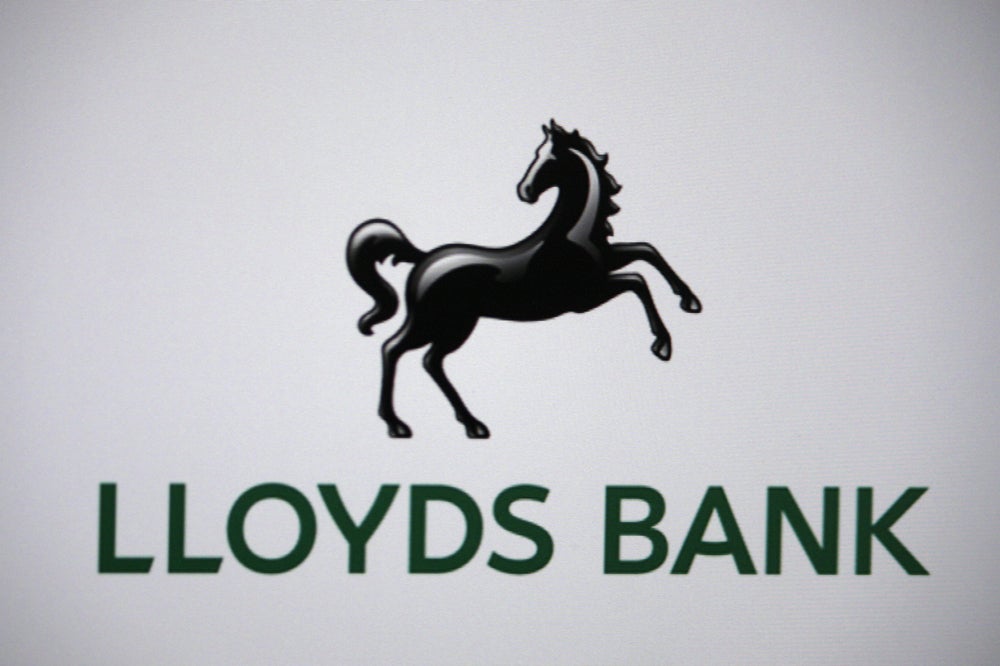Like most institutions, First Data Corp was buffeted by the economic crisis. Unlike many, however, it has approached it as an opportunity to make the most of a bad situation and has substantially reorganised to maximise cross-selling opportunities. Charles Davis looks at the companys new strategic direction.
 With consumer credit on a precipitous decline and the final effects of the Durbin Amendment on the interchange market still months away, First Data has been working to become a more streamlined company with a single book of business.
With consumer credit on a precipitous decline and the final effects of the Durbin Amendment on the interchange market still months away, First Data has been working to become a more streamlined company with a single book of business.
The companys torrid pace of innovation reflects the realities of the $22bn in debt that the companys owner, Kohlberg Kravis Roberts, took on when it took First Data private in 2007. Now, with credit card transactions falling for the first time in history, First Data really has little choice but to diversify and seek new revenue streams.
After going through two CEOs in short order, the company seems to be settling into growth mode under Jonathan Judge, former CEO of payroll processor Paychex.
Judges arrival followed on the heels of a full-year loss of $1.1bn, a good chunk of that thanks to the loss of Washington Mutuals business after its acquisition by JP Morgan Chase. Mark Herrington, the companys executive vice-president of global product management and innovation says the company has focused on becoming a more client-driven, cross-selling machine.
How well do you really know your competitors?
Access the most comprehensive Company Profiles on the market, powered by GlobalData. Save hours of research. Gain competitive edge.

Thank you!
Your download email will arrive shortly
Not ready to buy yet? Download a free sample
We are confident about the unique quality of our Company Profiles. However, we want you to make the most beneficial decision for your business, so we offer a free sample that you can download by submitting the below form
By GlobalData"The economy has required us to make some rather dramatic changes to our structure and our capabilities, and I think we can look back on this and say it was for the best," he says. "We had three businesses, really, the merchant-facing business, the financial services-facing business, and our international business. Now we have a single product set, across all lines of business."
Standardisation
 Herrington says that First Data has instituted a format for selling standardised products "solution maps" that take the companys 50 channels across the world and provide a map for each so each has a set, defined product pathway.
Herrington says that First Data has instituted a format for selling standardised products "solution maps" that take the companys 50 channels across the world and provide a map for each so each has a set, defined product pathway.
"We are selling products consistently across markets, rather than deal by deal," he says. "It is a huge change, and it is being felt already."
Such change can be an enormous effort in such a huge company. First Data, an Atlanta-based processing company, provides electronic commerce and payment solutions ranging from merchant transaction processing services to card offerings around credit, debit, private-label, prepaid and gift cards, as well as fraud protection and authentication solutions, electronic cheque acceptance services and online and mobile payment products.
It owns one of the largest ATM networks in the US, the STAR Network, which gives it the ability to offer PIN-secured debit acceptance at ATM and retail locations.
Mobile innovation
 All eyes at First Data are currently on its high-profile Google Wallet alliance with Citi, MasterCard and Sprint which went live recently.
All eyes at First Data are currently on its high-profile Google Wallet alliance with Citi, MasterCard and Sprint which went live recently.
"Its very exciting for us, and the market has many different levels of expectations, but I think Google Wallet is going to be mainstream in closer to two years than the 10 years I keep reading," he says.
Google Wallet, an app that makes mobile phones virtual wallets through the use of either PayPass-enabled Citi MasterCard or a virtual Google prepaid card, is by far the companys biggest play in mobile, and unveils with about a million payment readers in the system already.
At least for now, only PayPass-enabled Citi MasterCards may be loaded to Google Wallet but thats expected to change in the future as Google builds the system out. In fact, a day later, Visa announced that it had granted Google a worldwide licence to its payWave system, meaning that all Visa banks would be allowed to let their customers add their card accounts to the Google Wallet app.
Herrington notes that Google Wallet also enables consumers to store coupons, loyalty cards and gift cards within their phone. When users tap to pay, the device will automatically redeem offers and earn loyalty points. Google has said it hopes to eventually expand the solution to boarding passes, event tickets, ID cards and keys.
"Thats the ideal, really, to be able to offer real-time couponing and other offers at the point of sale," he says.
That could happen soon. Google Wallet marketers also will have the option to link paid-search ads with offers and coupons at POS terminals. It will also link in with Google Offers, Googles daily deal service.
First Datas role in Google Wallet has been the deployment of a NFC-based trusted service manager payment system that works with its Google partners, Citi, MasterCard, and Sprint.
Bridge-building
First Data is participating in mobile commerce in several other ways as well, including the provisioning of secure card information to the handset, providing prepaid offerings into the wallet and working with its merchant base to enable NFC.
In what Herrington calls a "bridge" to true NFC-enabled payments, the company also launched mVouchers, an electronic coupon product that stores a prepaid value funded by the merchant or by a consumer product company.
The vouchers can be sent through a text message, a barcode, or through NFC, and can be delivered as coupons, loyalty rewards, promotional rewards, contest rewards or general marketing messages.
A consumer can request an mVoucher by responding to a banner ad online, a text message sent to frequent shoppers, or through a retail promotion. The system also gives merchants the option of sending the consumer a registration process to allow their customers to join a loyalty club to get additional virtual offers through email or SMS.
At the point of sale, the cashier simply enters a 16-digit code or scans the barcode to unlock the savings. Consumers can reload funds on the voucher, check their balance and find their nearest retail location through the voucher.
"mVoucher is a really easy to use, easy to explain mobile commerce product for retailers who want to ramp up quickly by using their existing gift card infrastructure," Herrington says.
"Its more of an interim step, but it addresses the non-NFC market as we move merchants to NFC by moving closed-loop prepaid to the handset."
Another step towards mobile commerce is First Datas eGift Social product, which allows consumers to send prepaid gifts through Facebook or email. The eGift Social programme works on Facebooks site to offer gift messages stored value in the form of an account number that is delivered by text message or Facebook message. The companys growing roster of corporate partners in the programme now includes Burger King, Cold Stone Creamery, Sears, Kmart, and several others.
Facebook users have, from the very beginning of the site, been wild about sending virtual gifts to friends. In fact, Facebooks research shows that they spent more than $10m in 2010 on virtual novelties. eGift Social is the first tool that extends that gift-giving ability to actual physical items in the offline world, Herrington says.
"Given the amount of consumer time and attention that is dedicated to social media, and how much of that is being conducted through mobile channels, we see eGift Socials as a way to bring the social network into the real world of payments," Herrington says.
Fighting fraud
Other First Data initiatives in the mobile space include GoTag, a contactless payment sticker introduced in 2008; a mobile payment memory card developed with Tyfone Inc; and an expedited mobile payment service developed between Obopay Inc and First Datas Star network.
In addition to mobile commerce, First Data is also responding to concerns about data security and fraud detection. TransArmor, its data security product, launched in 2010, Herrington says, safeguards cardholder data through a software package that can be installed on PC-based POS systems with minimal hardware upgrades. The system provides end-to-end encryption of cardholder data, eliminating the need for merchants to store the data on-site, removing a major fraud threat.
The service replaces card data with a token number from the moment it is presented at the merchant POS. The system retains the card data for merchant business operations but removes all value for fraudsters. The token allows merchants to continue to handle key business functions such as returns, recurring billing, loyalty programmes and other analysis, without enabling card data to be used for fraudulent transactions.
The company also teamed with data security firm Hypercom to offer its HyperSafe remote key system, which automates the security updates for payment terminals. As part of the agreement, Hypercom now markets TransArmor to its client base. First Data has more than 200,000 merchants using TransArmor now, less than a year after setting a goal of 100,000 merchants in the programmes first year.
Finally, Herrington says that First Data is making a major push into data analytics. A number of different entities within the company have analytics functions, but First Data recently combined all of its analytics work into one line of business, and has packaged its analytics offerings under one roof.
Through a consolidated merchant web portal, First Datas Business Track product provides data on all payment streams, including credit, debit, prepaid/gift card and cheque data. Easy-to-read charts depict daily sales and deposit data by payment type, along with new SpendTrend excerpts to help merchants monitor payment processing data in real time and benchmark their performance against the competition.
The web-enabled, interactive format of SpendTrend provides merchants with the ability to filter breakdowns of industry by region or payment type for more granular insight into US consumer buying behaviour.
The online tool enables subscribers to view their own growth compared to the overall market along with economic insights that support growing trends.
"Were really excited about data analysis, and we think that moving this all into one business line really offers new sales opportunities for us," Herrington says.
"We have this enormous data store, so we can increase granularity around that just as merchants and issuers are dealing with new challenges in the cards business."
The upshot of all of this is a company reorganising itself even as it launches a host of new products aimed at cross-selling to its massive customer base of issuers and acquirers.
Making a difference
These moves are showing up on the bottom line as well. The balance sheet is improving, reflecting the diversification efforts as well as underscoring the importance of the companys international operations.
For the second quarter of 2011, revenue increased by $135m to $2.7bn, up 5% compared to $2.6bn a year ago, and the net loss fell to $176m from $171m in the second-quarter of 2010. First Data generated $526m in operating cash flow, after interest payments of $161m, for the quarter and finished the quarter with $1.8bn in unrestricted liquidity $287m in cash available for corporate use plus $1.5bn in revolving credit.
To Herrington, the road back to profitability is all about innovation and organisation.
"I have been here quite a while, and I can say that we have never been as well structured as a company to leverage our strengths and capitalise on the emerging trends," Herrington says.








